Related Research Articles
William Julius Wilson is an American sociologist, a professor at Harvard University, and an author of works on urban sociology, race, and class issues. Laureate of the National Medal of Science, he served as the 80th President of the American Sociological Association, was a member of numerous national boards and commissions. He identified the importance of neighborhood effects and demonstrated how limited employment opportunities and weakened institutional resources exacerbated poverty within American inner-city neighborhoods.

Charles Richard Johnson is an American scholar and the author of novels, short stories, screen-and-teleplays, and essays, most often with a philosophical orientation. Johnson has directly addressed the issues of black life in America in novels such as Dreamer and Middle Passage. Johnson was born in 1948 in Evanston, Illinois, and spent most of his career at the University of Washington in Seattle.
Donald Edward Osterbrock was an American astronomer, best known for his work on star formation and on the history of astronomy.
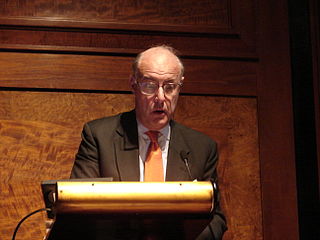
Sir David Nicholas Cannadine is a British author and historian who specialises in modern history, Britain and the history of business and philanthropy. He is currently the Dodge Professor of History at Princeton University, a visiting professor of history at Oxford University, and the editor of the Oxford Dictionary of National Biography. He was president of the British Academy between 2017 and 2021, the UK's national academy for the humanities and social sciences. He also serves as the chairman of the trustees of the National Portrait Gallery in London and vice-chair of the editorial board of Past & Present.

Kenneth Pomeranz, FBA is University Professor of History at the University of Chicago. He received his B.A. from Cornell University in 1980, where he was a Telluride Scholar, and his Ph.D. from Yale University in 1988, where he was a student of Jonathan Spence. He then taught at the University of California, Irvine, for more than 20 years. He was elected a Fellow of the American Academy of Arts & Sciences in 2006. In 2013–2014 he was the president of the American Historical Association. Pomeranz has been described as a major figure in the California School of economic history.
George Thomas Dickie was an American philosopher. He was a Professor Emeritus of Philosophy at University of Illinois at Chicago. His specialities included aesthetics, philosophy of art, and Eighteenth Century theories of taste.
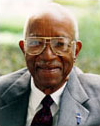
John Hope Franklin was an American historian of the United States and former president of Phi Beta Kappa, the Organization of American Historians, the American Historical Association, and the Southern Historical Association. Franklin is best known for his work From Slavery to Freedom, first published in 1947, and continually updated. More than three million copies have been sold. In 1995, he was awarded the Presidential Medal of Freedom, the nation's highest civilian honor.
Jonathan Lear is an American philosopher and psychoanalyst. He is the John U. Nef Distinguished Service Professor in the Committee on Social Thought at the University of Chicago and served as the Roman Family Director of the Neubauer Collegium for Culture and Society from 2014 to 2022.

David Levering Lewis is an American historian, a Julius Silver University Professor, and professor emeritus of history at New York University. He is twice winner of the Pulitzer Prize for Biography or Autobiography, for part one and part two of his biography of W. E. B. Du Bois. He is the first author to win Pulitzer Prizes for biography for two successive volumes on the same subject.
Jerome John McGann is an American academic and textual scholar whose work focuses on the history of literature and culture from the late eighteenth century to the present.
Caroline Walker Bynum, FBA is a Medieval scholar from the United States. She is a University Professor emerita at Columbia University and Professor emerita of Western Medieval History at the Institute for Advanced Study in Princeton, New Jersey. She was the first woman to be appointed University Professor at Columbia. She is former Dean of Columbia's School of General Studies, served as president of the American Historical Association in 1996, and President of the Medieval Academy of America in 1997–1998.
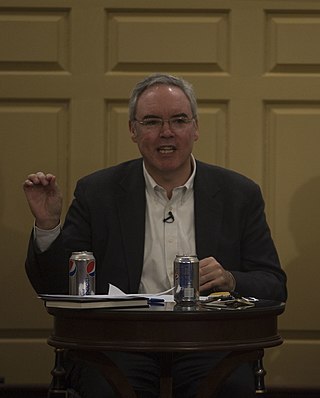
Thomas J. Sugrue is an American historian of the 20th-century United States currently serving as a professor at New York University. From 1991 to 2015, he was the David Boies Professor of History and Sociology at the University of Pennsylvania and founding director of the Penn Social Science and Policy Forum. His areas of expertise include American urban history, American political history, housing and the history of race relations. He has published extensively on the history of liberalism and conservatism, on housing and real estate, on poverty and public policy, on civil rights, and on the history of affirmative action.

Robert Beachy is associate professor of history at the Underwood International College at Yonsei University in Seoul, South Korea. He was raised in Mennonite communities in Puerto Rico and Indiana. He formerly taught at Goucher College in Baltimore, Maryland.
Edward Wallace Muir Jr. is a Professor of History and Italian at Northwestern University. He is also Clarence L. Ver Steeg Professor in the Arts and Sciences and Charles Deering McCormick Professor of Teaching Excellence. Known for his use of anthropological methods in historical research, he was a pioneer in the historical study of ritual and feuding. He has been especially influential in using and interpreting microhistorical methods, which were first devised by historians in Italy. His work has focused on Renaissance Italy, especially the Republic of Venice and its territories. He served as president of the American Historical Association in 2023.

James J. Sheehan is an American historian. His scholarship has focused on the history of modern Germany, and he is a former president of the American Historical Association (2005).
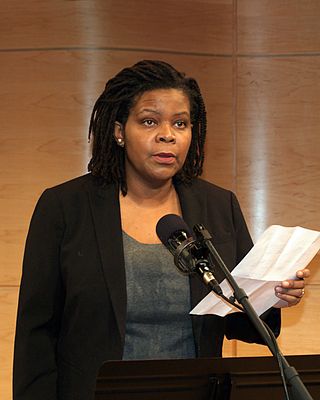
Annette Gordon-Reed is an American historian and law professor. She is currently the Carl M. Loeb University Professor at Harvard University and a professor of history in the university's Faculty of Arts & Sciences. She is formerly the Charles Warren Professor of American Legal History at Harvard University and the Carol K. Pforzheimer Professor at the Radcliffe Institute for Advanced Study. Gordon-Reed is noted for changing scholarship on Thomas Jefferson regarding his relationship with Sally Hemings and her children.

Linda Kaufman Kerber is an American feminist, a political and intellectual historian, and educator who specializes in the history and development of the democratic mind in America, and the history of women in America.
Estelle Freedman is an American historian. She is the Edgar E. Robinson Professor in U.S. History at Stanford University She received her Bachelor of Arts degree from Barnard College in 1969 and her Master of Arts (1972) and PhD (1976) in history from Columbia University. She has taught at Stanford University since 1976 and is a co-founder of the Program in Feminist Studies. Her research has explored the history of women and social reform, including feminism and women's prison reform, as well as the history of sexuality, including the history of sexual violence.
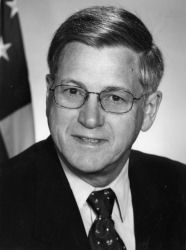
Kenneth Prewitt an American academic who is the Carnegie Professor of Social Affairs at Columbia University's School of International and Public Affairs, where he is also director of the Scholarly Knowledge Project. He was Director of the United States Census Bureau from 1998 to 2001.
Thomas Shawn Mullaney is an American sinologist. He is a Guggenheim fellow. He is professor of history at Stanford University, working on technology, race, and ethnicity in China.
References
- ↑ Thomas C. Holt biography Archived 2016-03-15 at the Wayback Machine , The University of Chicago.
- ↑ Thomas C. Holt, Department of History, The University of Chicago.
- ↑ Thomas C. Holt. Archived July 2, 2007, at the Wayback Machine
- ↑ "Holt, Thomas Cleveland", Reports of the President and of the Treasurer, John Simon Guggenheim Memorial Foundation, 1988, p. 53.
- ↑ "Newly Elected - April 2016", American Philosophical Society.
- ↑ "Awards — The Charles S. Sydnor Award" Archived May 13, 2016, at the Wayback Machine , The Southern Historical Association.
- ↑ John D. and Catherine T. MacArthur Foundation, Fellows List Archived March 7, 2012, at the Wayback Machine
- ↑ "Holt named to National Council on Humanities", University of Chicago Chronicle, Vol. 14, No. 2, August 18, 1994.
- ↑ American Academy of Arts and Sciences, Class of 2003 - Fellows
- ↑ American Academy in Berlin, Citigroup Fellow Class of Fall 2008: Thomas Holt